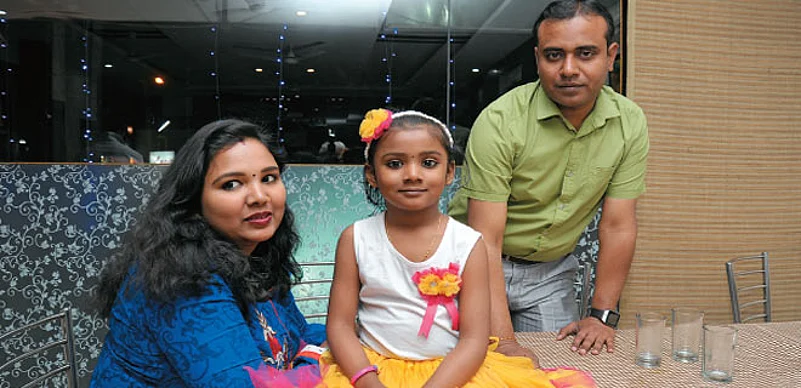Sunil Kumar, 34, is employed as a sub-inspector with the CISF and has been working in Delhi since the beginning of his career. He lives with his wife, Alka Bharti and their 4-year-old daughter, Vaishnavi.
Like all responsible parents, his daughter’s education is his top priority. His daughter has many years ahead of her before she goes off to college and it’s not certain which field her interest lies in. However, one thing is certain—the cost of education is on the rise. “There are still about 14 years left for her graduation and it is too early to say what she will have an interest in. But with the cost of education going up so fast, I would need to be prepared to support her financially in whatever career she wishes to take up,” says a concerned Kumar.
Kumar has got his basics right. On his brother’s advice, he got a term plan of Rs 60 lakh. He started investing in mutual funds a couple of years ago and now does two SIPs of Rs 10,000 each every month. “These are for long term goals and I will not touch the money now. I also invest money in PPF for tax saving purposes, but realise the importance of mutual fund investments to make my money grow faster and keep pace with inflation,” he says.
Being a Government employee, Kumar makes mandatory investments in NPS. The Budget 2016 has made a provision of an extra Rs 50,000 in NPS over what is available in 80C and Kumar wants to invest more in NPS in future. When it comes to his expenses, Kumar has meticulously tried to put away 40 per cent of his salary in savings and investments.
Based on the goal assumption that his daughter would get into a four year Engineering program, the current cost of which is assumed to be at Rs 2.5 lakh per annum, the cost of education when the child reaches college at 18 years of age at an inflation rate of 6 per cent is calculated.

As human beings, it’s natural to be apprehensive about the future. However often, our worries are nothing but a waste of time. For instance, his daughter might do well academically and finish college at a fraction of the expected cost. What he should rather worry about is if he has taken care of his future. Being in the armed forces is a risky business. Though there are perks to serving the country through the armed forces, like getting reservations, admissions to schools, healthcare etc., one’s life is always at risk, so it is absolutely necessary to be heavily insured. It is crucial for Kumar to focus on his immediate future at all times slightly more seriously than his daughter’s education expenses, which will strike around 14 years later.
Kumar aspires to buy a house in his ancestral place in Bihar, where several of his relatives reside. But since that might burn a hole in his pocket right now, he is concentrating on investing his wealth.



























